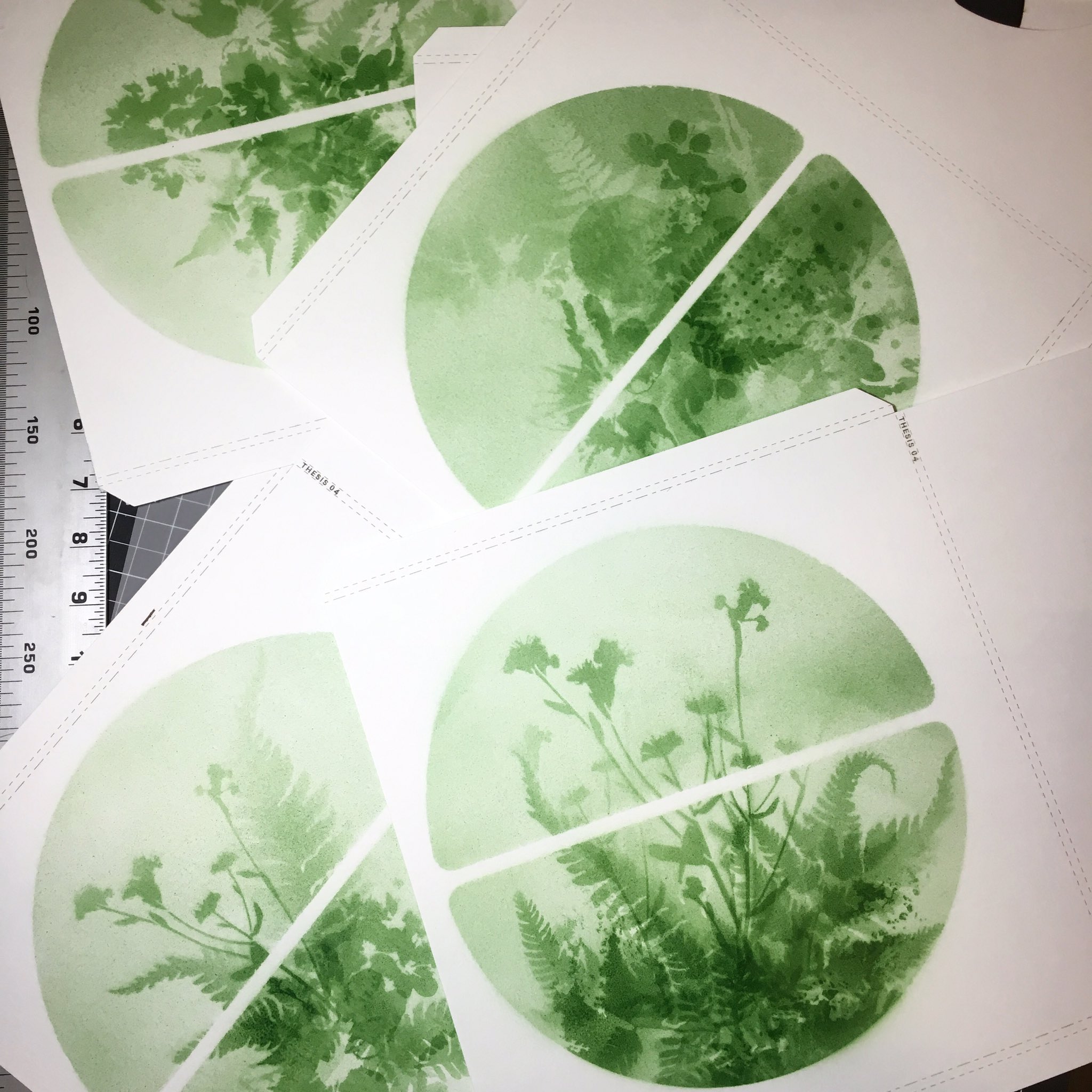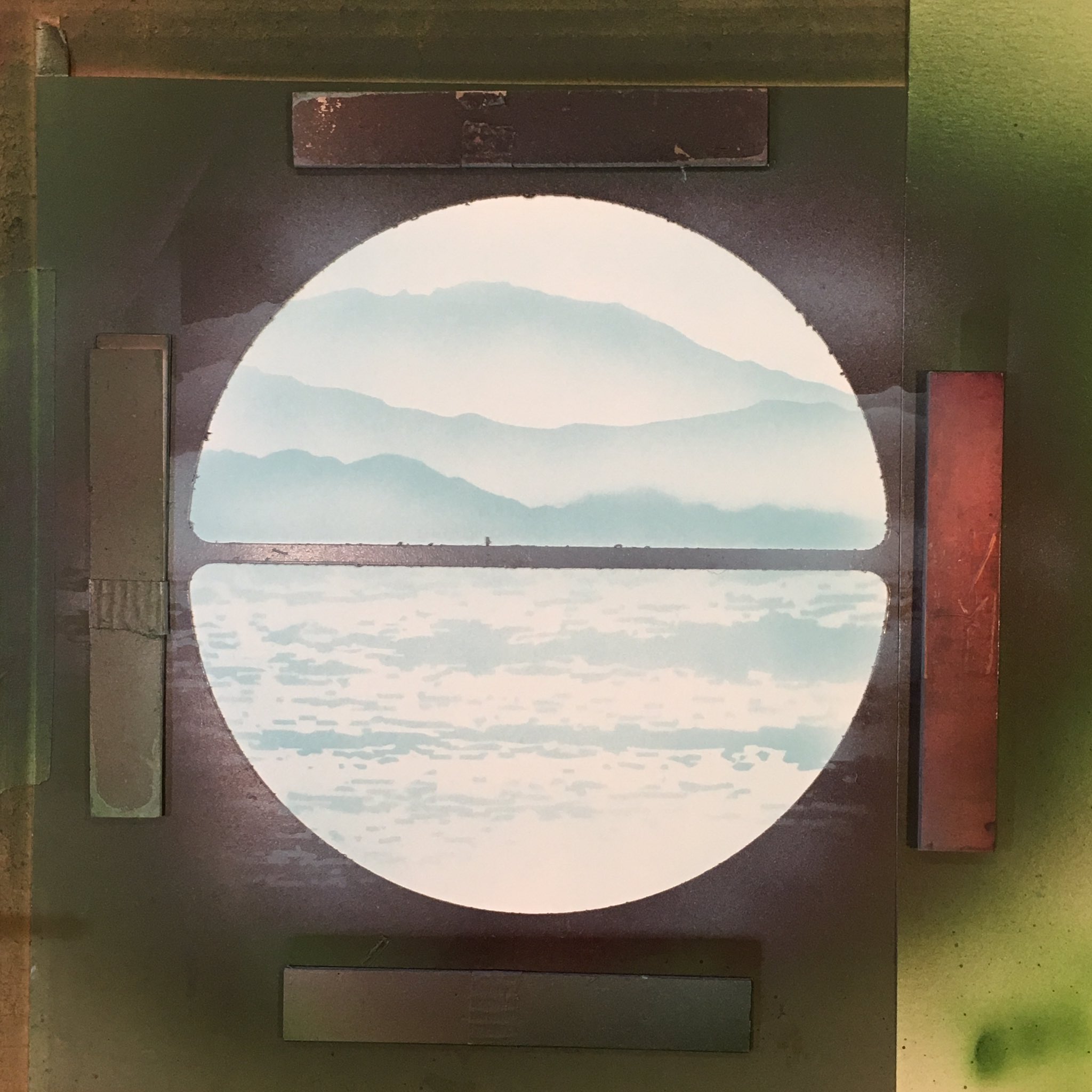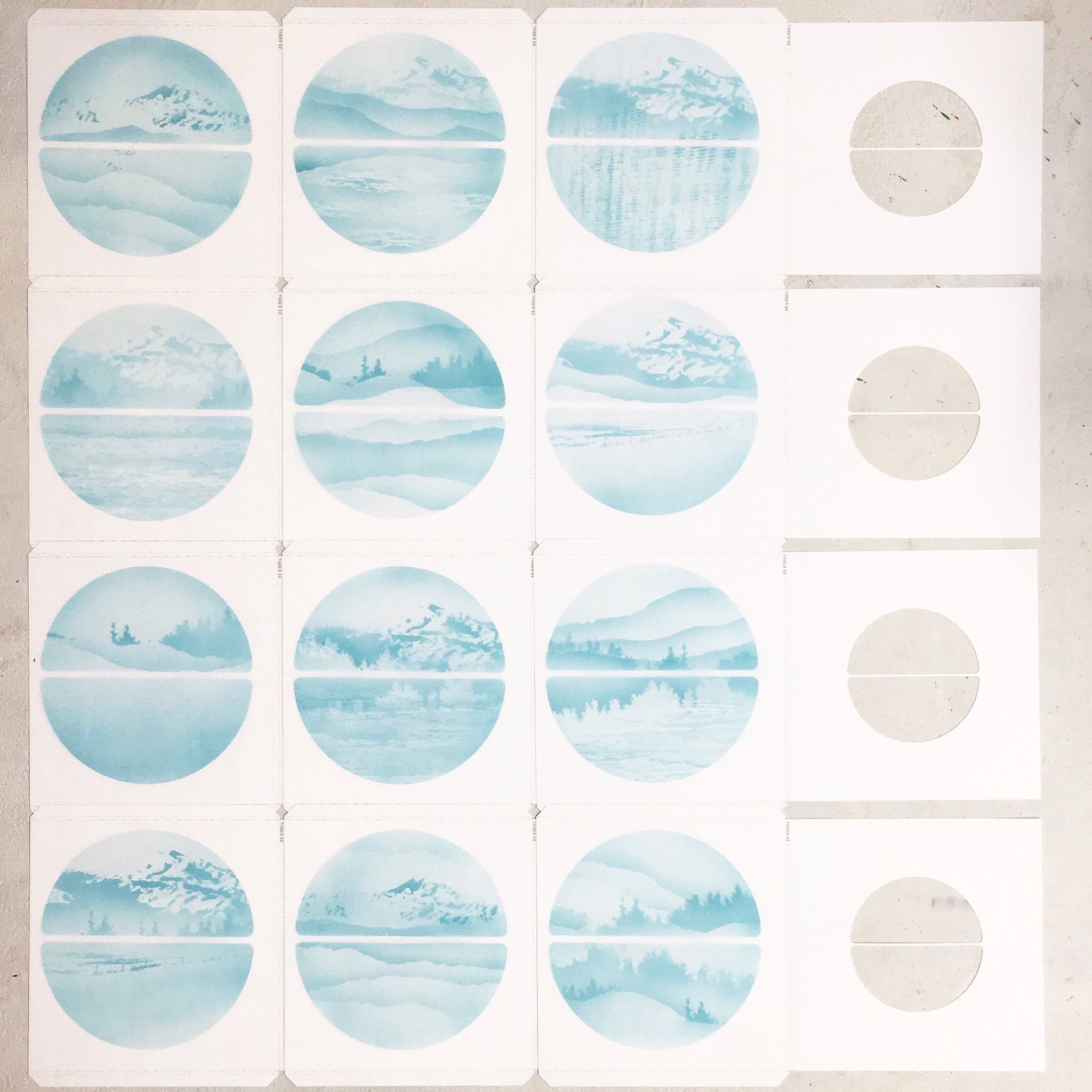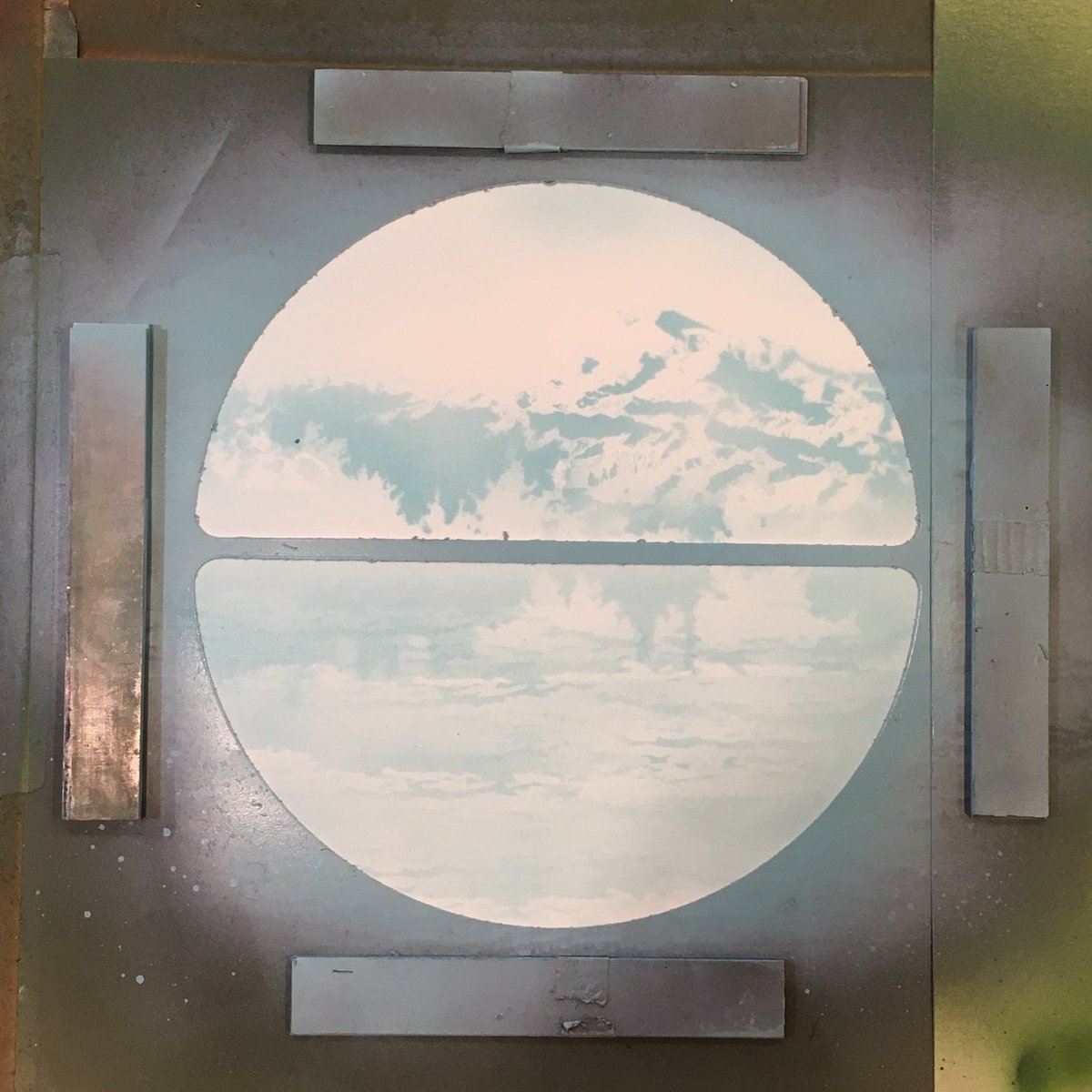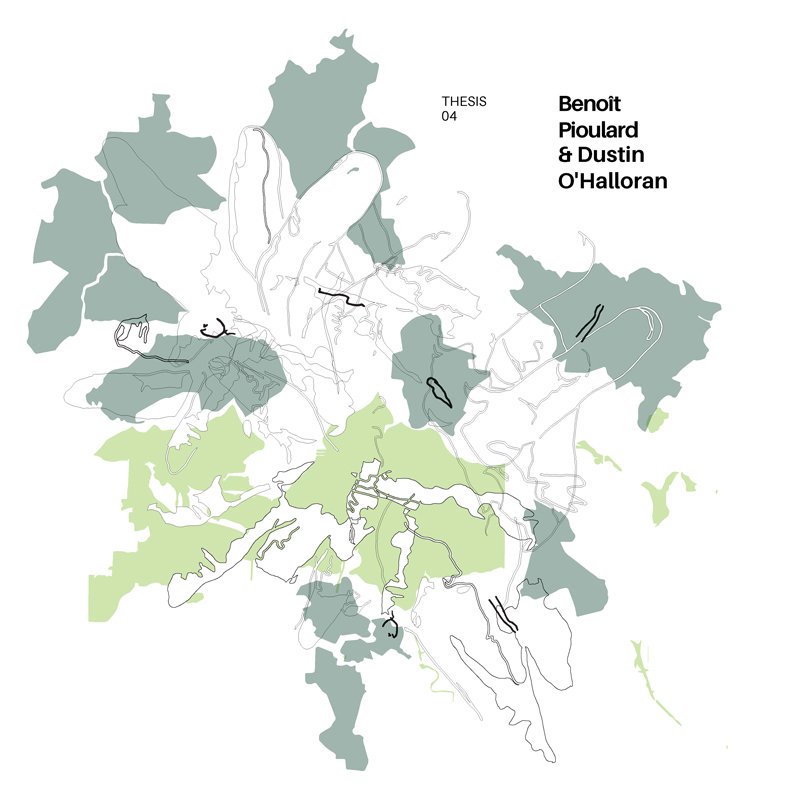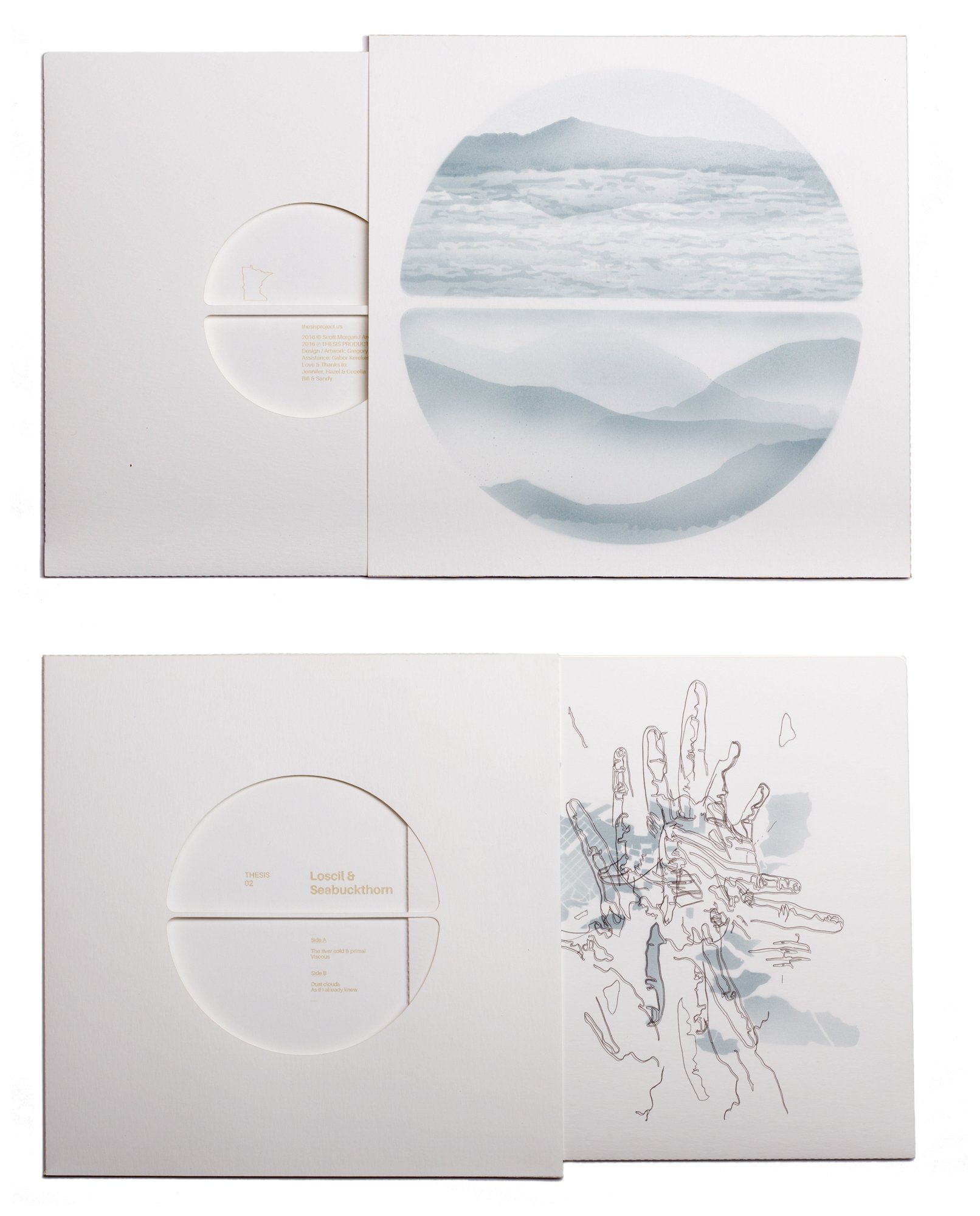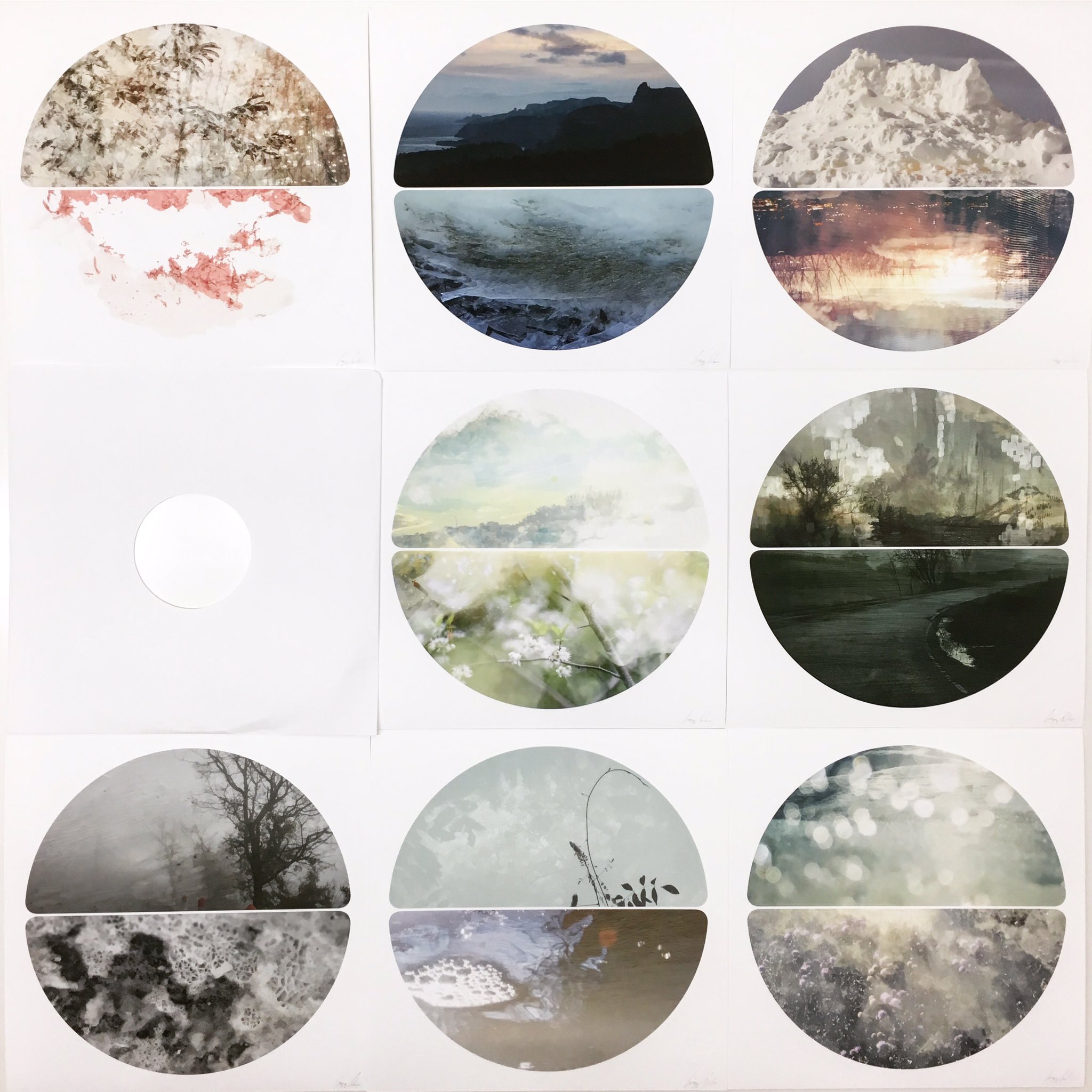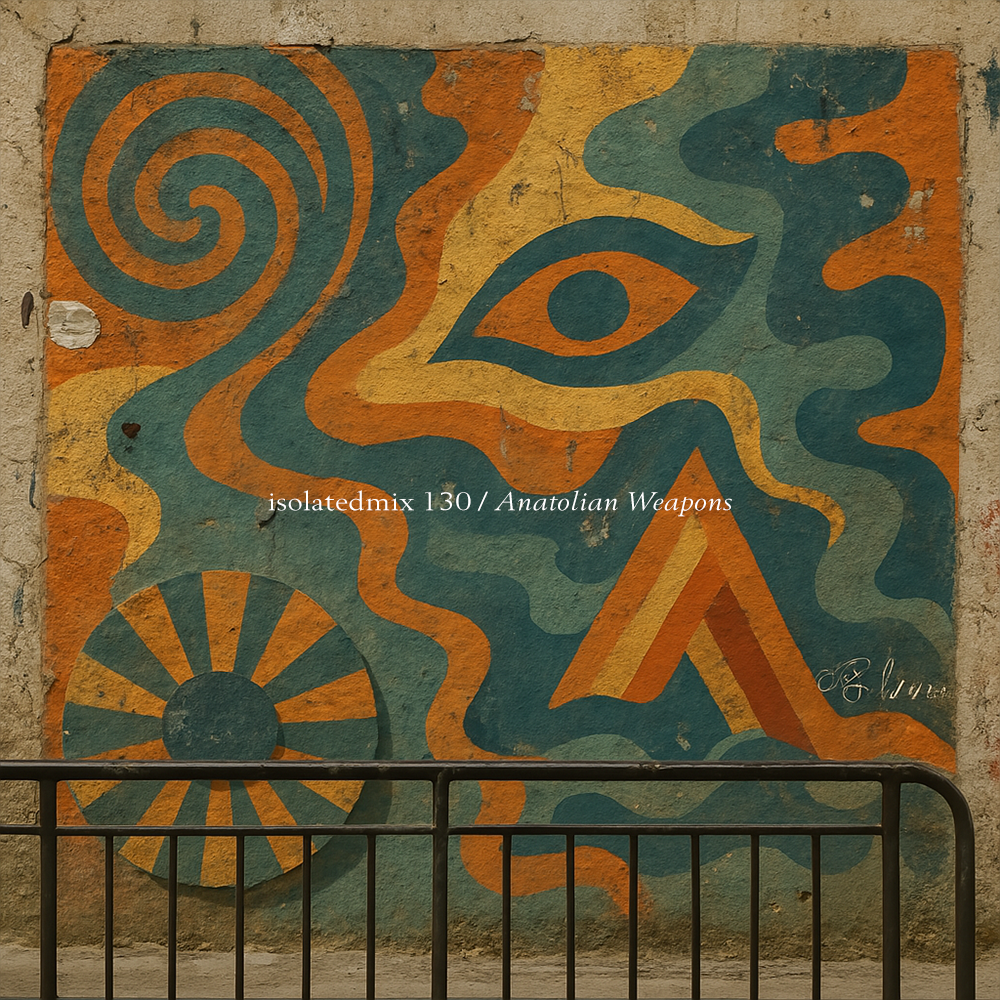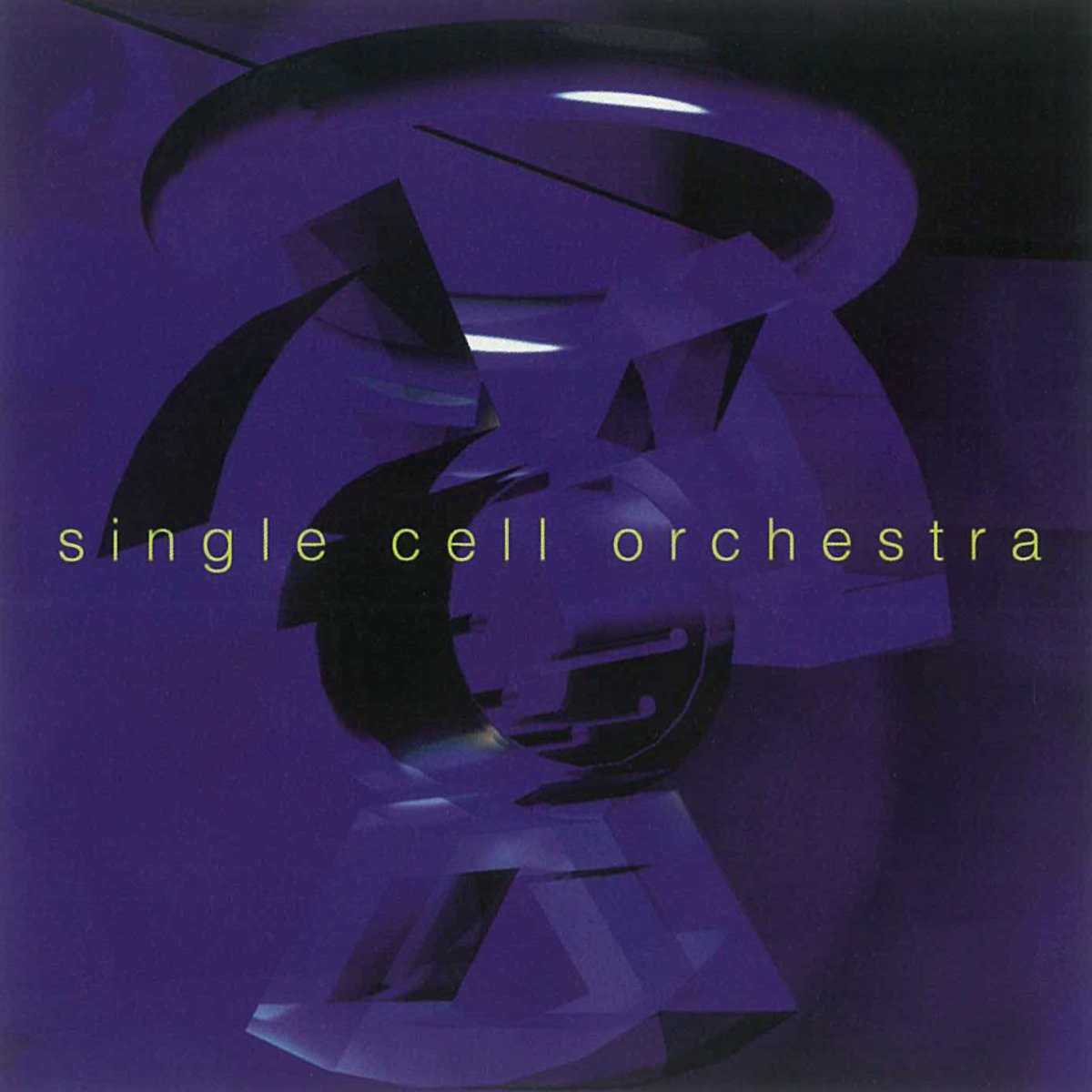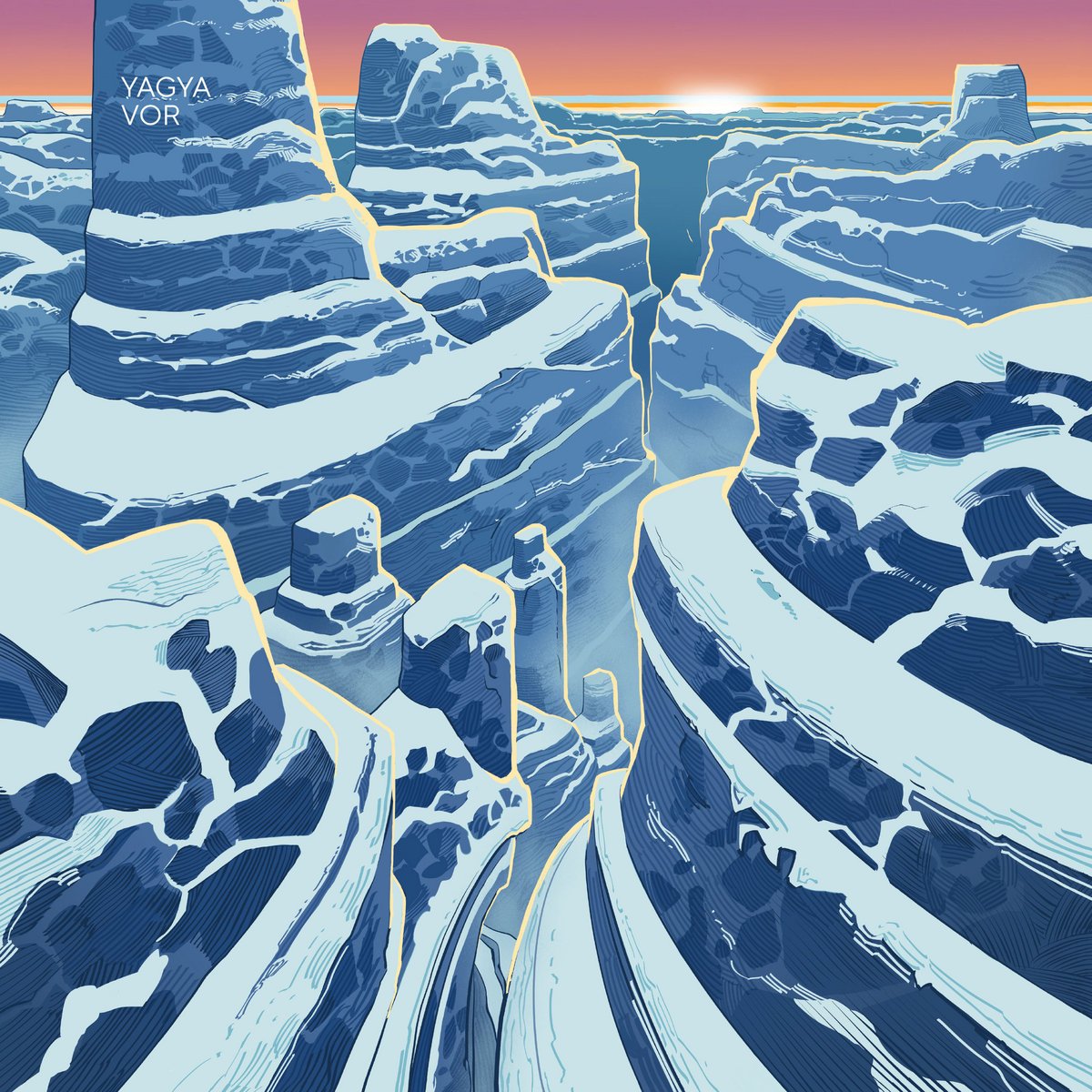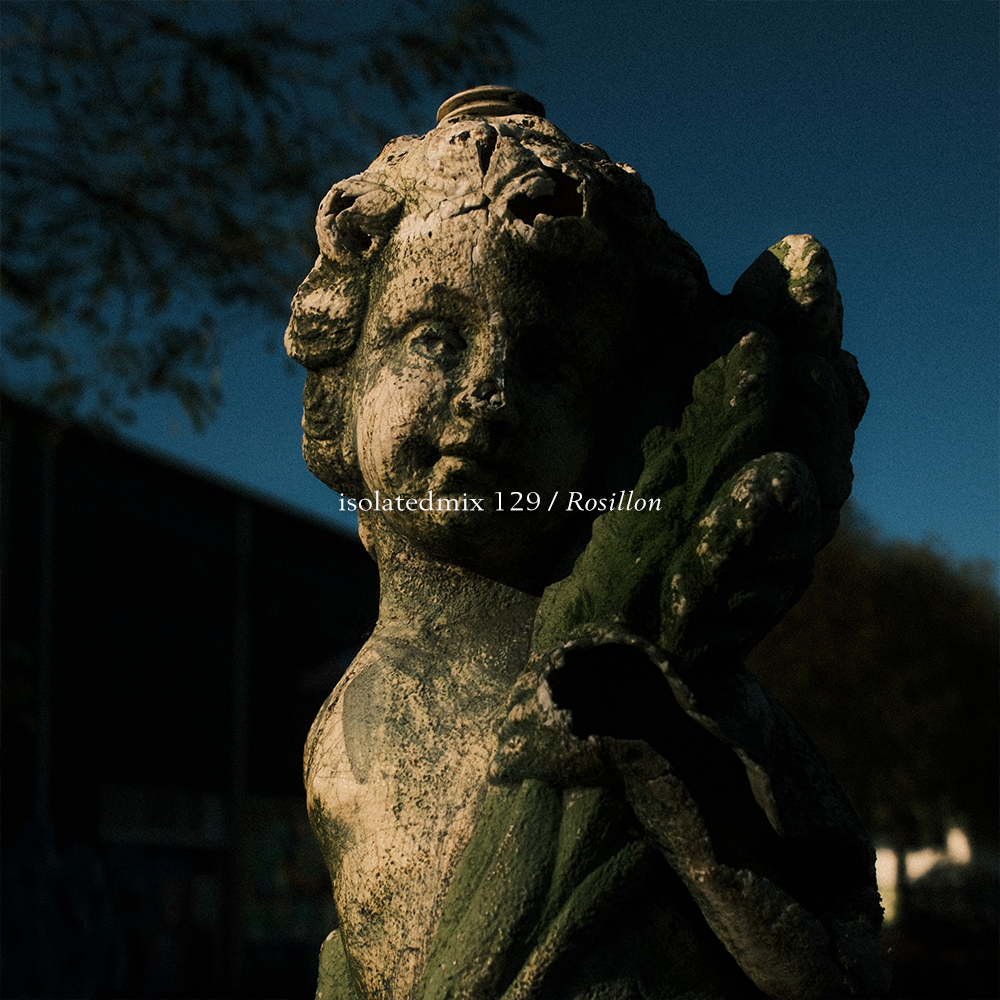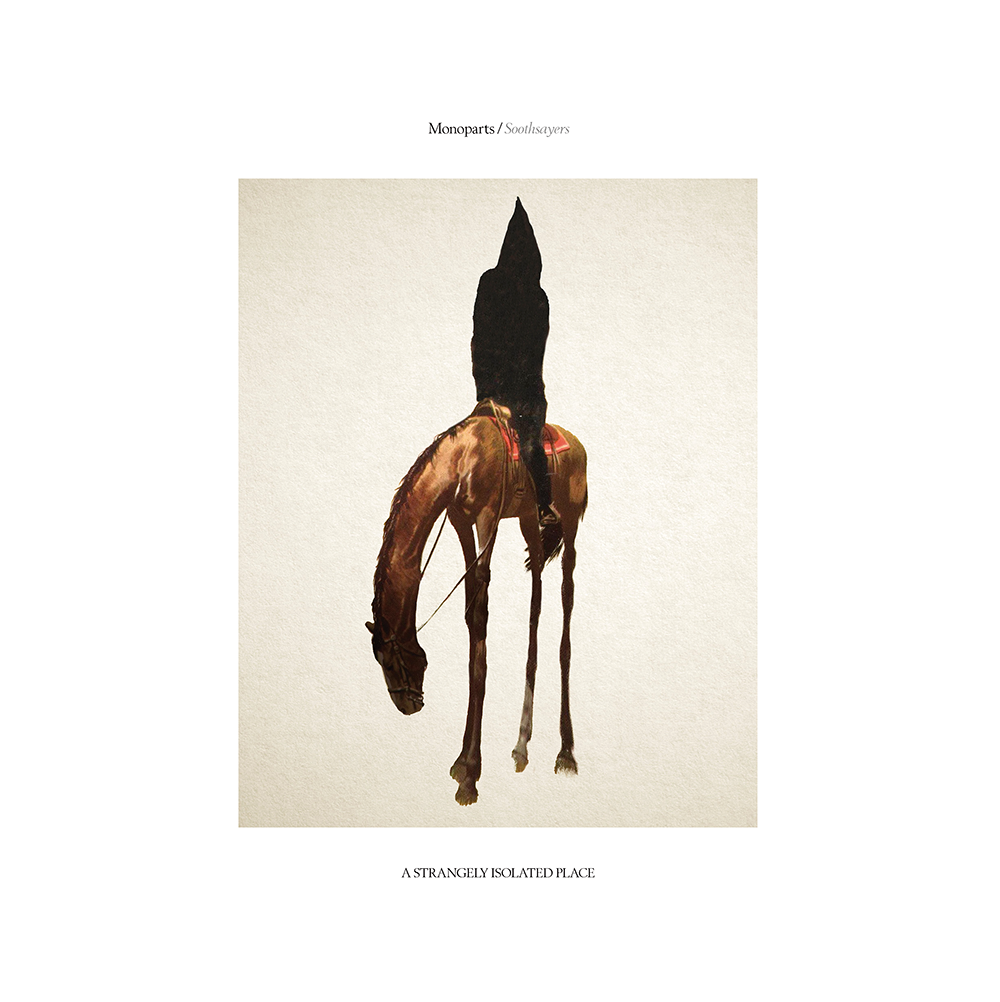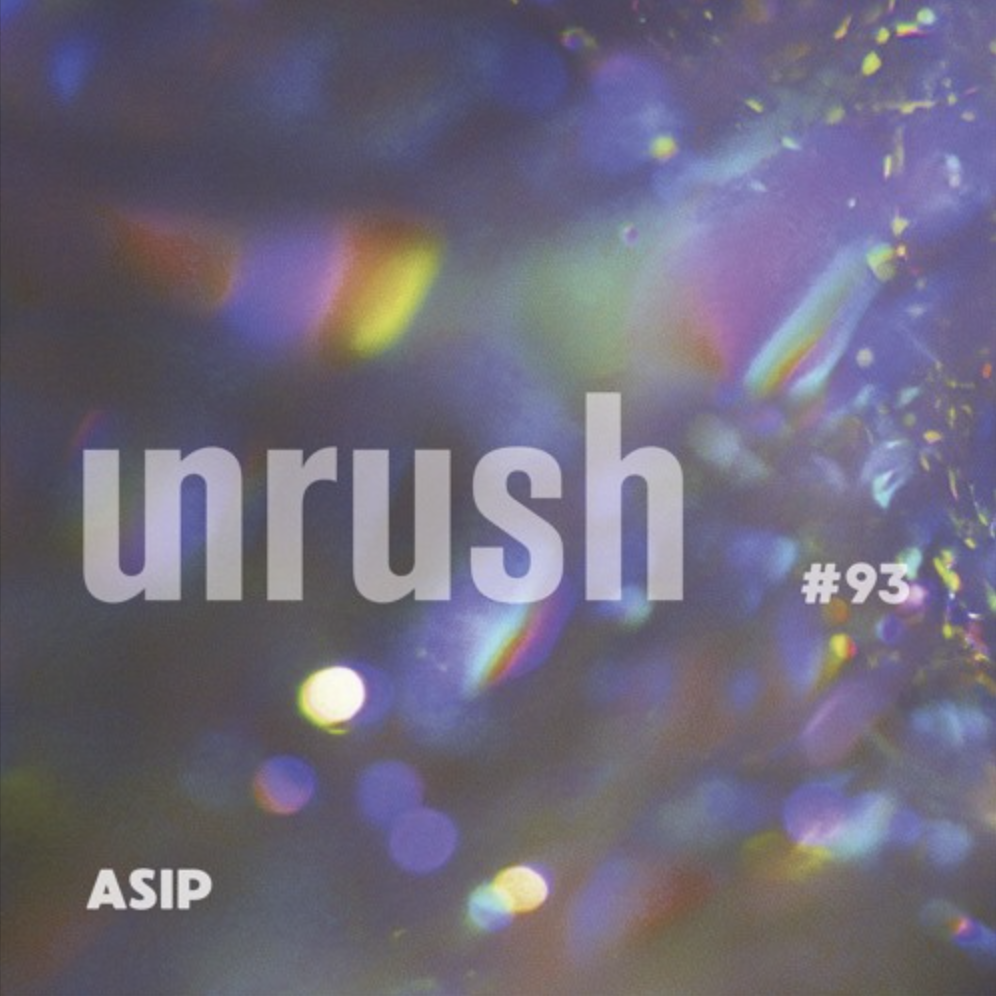We're big fans of craft when it comes to physical releases. We've gone so far as creating custom wooden CD and vinyl cases for previous releases here at ASIP, and often spend more time discussing artwork than the actual music when it comes to each release. So to see Gregory Euclide pushing forward a truly custom take on physical vinyl releases, we wanted to find out more, especially given the music at hand.
The Thesis Project was triggered by a deep desire to bring something valuable back into a world of fast consumption, as Gregory began during a recent twitter conversation: "music has always been an object and not just files on a device. I wanted to make music physical, unique and precious again". As an artist behind some well known releases from Erased Tapes and Lubomyr Melnyk, this was Gregory's chance to combine his passion for art and music: "I see the world in musical terms... everything has a sound. Colors, movements... every sound has an action... and that is where I worked for a long time. I was making music with my pencils and brushes. I think it is pretty common for artists to have this connection. I tried to play music when I was in high school and college. I'm not mathematically gifted. I really struggle with it. So, my college music theory class was really hard for me. I think I thought it was out of the picture for me... to be involved in music in any other capacity than a consumer. I did a few album covers for musicians I really respected, but I still felt outside of it all.
When I think about my practice as an artist, I often try to mirror that of the music world. I like how musicians can have different projects, with different names. Artists always seem to be... just them, their name and they have to be consistent. Basically, my move to music through Thesis Project was a move away from the traditional idea of being an artist".
As with all deep desires and ambitions, it took a couple of real-life moments to push Gregory to begin the Thesis Project. Whilst attending a Vic Chestnutt concert, Gregory started wondering how much it would cost to commission a song from such an artist, after which he received a grant from the McKnight Foundation for his artwork, and decided to take his work into a new direction:
"I decided I would start asking musicians that I know if they would like to work on a project. When I am listening to certain musicians I think 'this would be really cool with this or that.' I started thinking about the idea of collaboration as a way to push something forward".
The Thesis Project was born, with the premise to combine two artists who have never worked together before and create a beautifully packaged, and custom release, with each sleeve laser-cut and etched by Gregory himself. Whilst this may seem like a tall ambition, given each piece would be custom and limited to 300 pieces, Gregory knew this was the only way he would be able to fulfill his burning ambition for the project.
"I don't really like the idea of me being the only visual artist for the project. One goal of the project was to try and compensate the artists well. Pay them up front and then give whatever extra is left from sales. This seems to be a successful model as musicians I have spoken with like the arrangement. In order for me to do that I have to do much of the artwork. I make each jacket and sleeve from scratch as well as make each of the unique covers. If I had to pay another artist to do that it would not be possible. So, for now, I'm doing it. I hope people don't get sick of it or think it is an ego thing".
I asked Gregory why he feels each piece needs to be unique, after all, from my experience, a premium, differentiated and highly-considered piece of artwork is enough to make something much more valuable in today's world. But his desire to create something individual stemmed from a desire to go against today's mainstream approach to music. It's his way of giving back to the artists, and to the listener, and leaving something truly unique in the world.
"Handmade is not a big deal to me in general. If something can be made better with a machine... I think, why not use that. When it comes to music it is different. Much of the project's concept comes as a reaction to my own life. I was eating up albums, buying them online, listening to them, buying more... downloading and downloading. I didn't even know what I had and what I didn't have. I wanted it everywhere. I wanted it free or cheep. It was gross. I wanted to pay attention again. To know the names of songs, to stop and listen, not just have it on as I was doing things. So, I decided it was going to be vinyl only. No streaming. No downloading. No on the go. The process of making the album covers takes over 2 hours a piece. I cut the paper, run the sleeve through the laser cutter, put a drawing on the sleeve, spray a stencil over the drawing, fold and glue the sleeve. I cut the paper, run the jacket through the laser cutter, put a unique painting on the cover, fold and glue the jacket. It is hard work. It is my way to make something that is the opposite of Spotify. It is my payment to the artists. To give them something unique. It is my payment to the music. Music can be turned into 10100001100010110101 and duplicated and deleted and downloaded again and so on. But I wanted to make something that people are careful with. I don't want it to be goofy or over the top. Just hand made because I care".
A wide spectrum of ambient, experimental and alternative stars have been a part of the project so far. Taylor Deupree and Sean Carey (of Bon Iver) graced the Thesis Project's first release, with Loscil & Seabuckthorn following, Sonic Pieces' Takeshi Nishimoto & City Centre Offices' Roger Döring (Dictaphone), Dustin O´Halloran* & Benoît Pioulard, gracing the catalog so far. As if that wasn't enough, the project has also announced collaborations between some ASIP favorites (and artists) including Rafael Anton Irisarri & Julianna Barwick, and Michael Price (Erased Tapes) & Christoph Berg and (it just keeps going), Eluvium & Marcus Fischer. If that list of artist collaborations isn't enough to persuade you of the project's ambition and curatorial skills, then I don't know what is.
Gregory's curatorial process is based loosely on who he may see as an interesting fit, but mainly because he sees something greater coming from the two parts. As Gregory describes, "I ask these people to work together because I think it is going to be meaningful... to them, to us. When I hear it, it is like... "ok, I was right" Taylor and Sean's work - the first one I did... was over the top. It was so satisfying. They liked it. I liked it. It was a win win. Nothing beats that feeling".
It's undoubtedly a challenge, defying the norms and akin to the format and approach, bringing something new to an otherwise fast-paced, ephemeral world, but these pairings aren't taken lightly and it takes Gregory a while to think of who would work well together. His dream pairing being Beth Gibbons and Justin Vernon, but until that works out, Gregory's trying to push the boundaries on a classic ambient approach that could quickly become a stale recipe: "I'm always hoping for musicians to take the opportunity to shed a skin, try something new, be totally open. I have a group of amazing musicians that I have not paired up yet, because I don't want the sound to be tired. I don't want to repeat the sound over and over again. I could do piano and ambient things till the end of time, but I'm looking for there to be a little something new in each of the releases."
Once he has decided on the duo, he'll make a graphic for each musician before they make the music: "It is kind of based on what I love about their work... how it makes me feel". From that, he develops the cover, adding things to the mix based on what comes back music-wise.
The vinyl sleeve artwork is abstract enough, but if you look closely, you'll notice the ongoing theme between them all, with Gregory taking contour drawings of each musician's hand and the city where they reside into consideration.
Gregory's ambition doesn't stop solely with the Thesis Project concept, with a similar but subtle concept Print/Track also gathering pace. Slightly different to the Thesis Project, Print/Track features a musician completing one side of a 10" by themselves in response to a work by a visual artist. Or alternatively, a visual artist responds to the work of a musician. The first release out of the blocks comes from Ed Carlsen and Heather Woods Broderick.
With two base-concepts, a host of amazing artists and all of the artwork falling on Gregory's lap, he's undoubtedly a busy man pushing through a very labor-intensive project. Thesis Project is a platform built entirely with the artists in mind. Funding is set-up to help everyone involved (you buy through a subscription), and Gregory is committed to doing most of the hard work to keep costs down.
It's projects like this that help push ambient and experimental music forward as a whole, whilst also raising awareness for lesser-known artists, now given an esteemed platform to express their works. It's a celebration of the format, showing the world what hard-graft, a focus and a passion for music and artwork can get you. And it's a big middle-finger to the way everyone thinks things should be done. You can move slowly. You can control it all yourself. You can spend more time on the artwork than the music if you wish. You can even fulfill dreams of seeing some of your musical heroes on the same record together. Thesis Project is proof.

